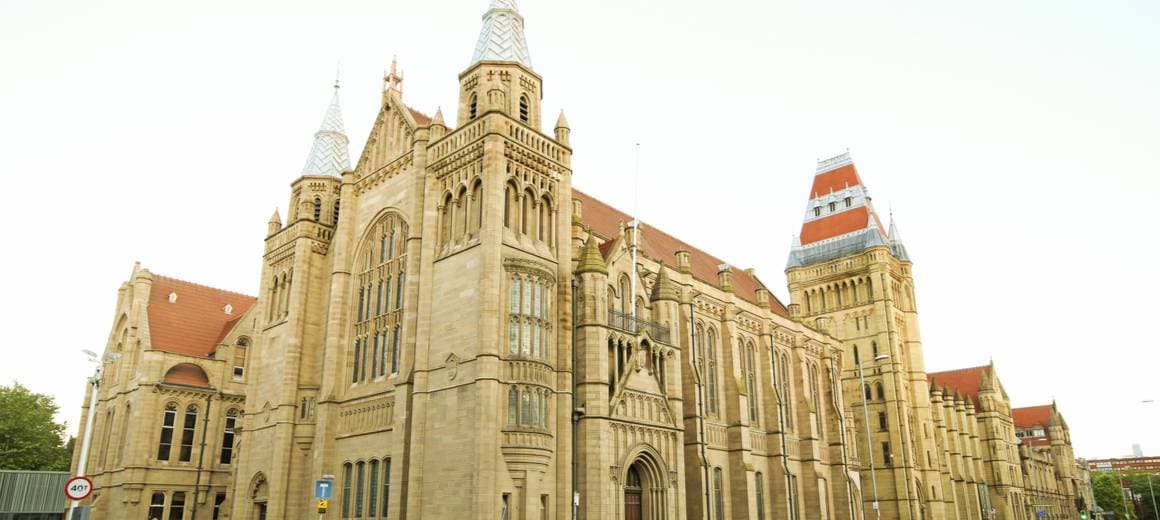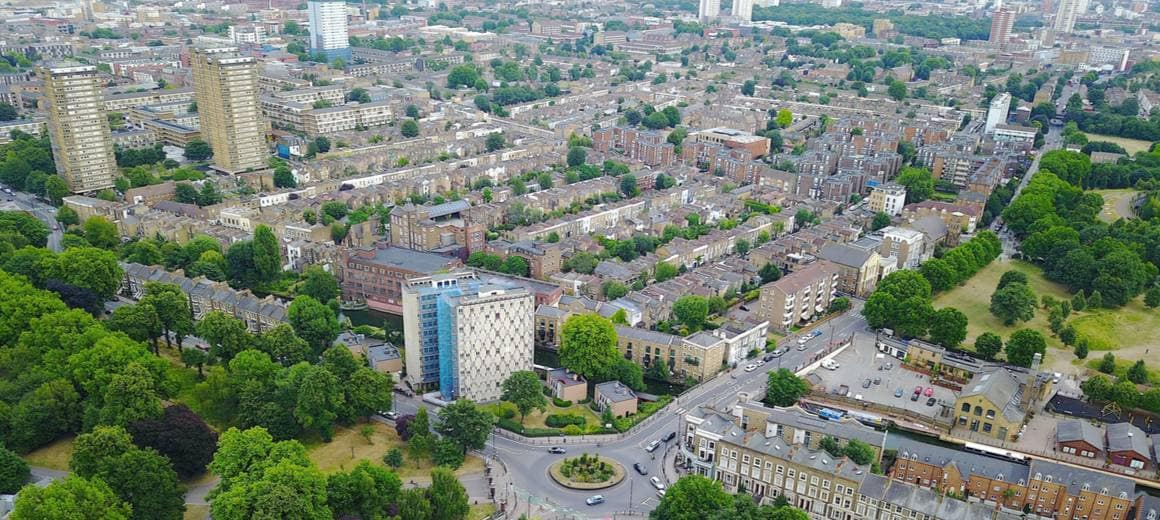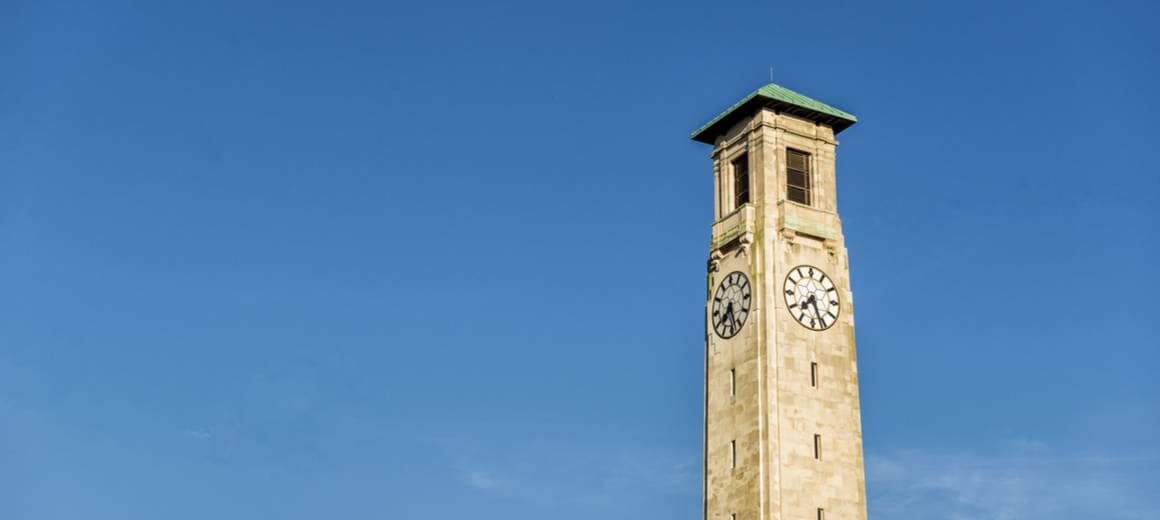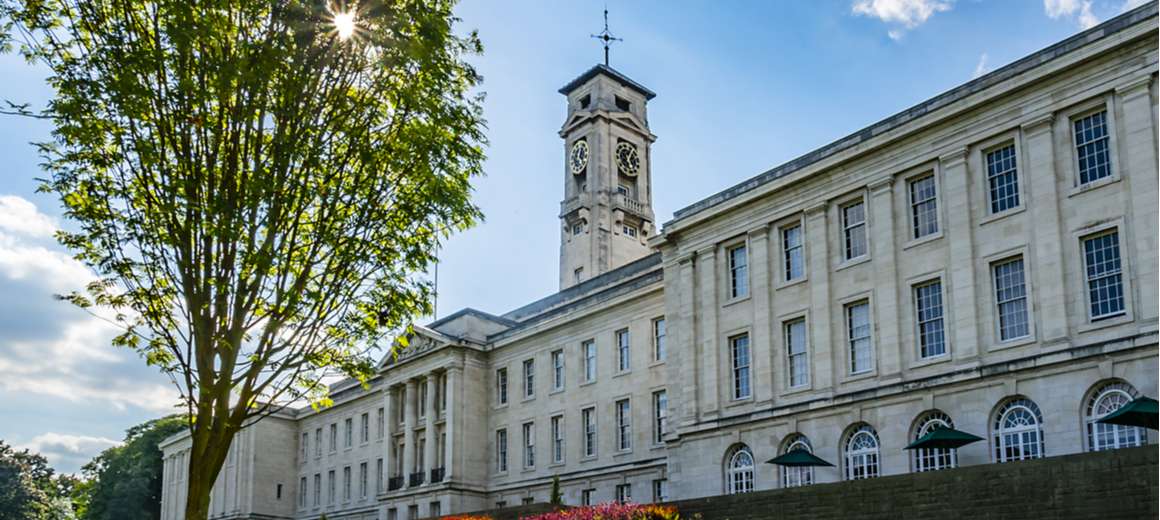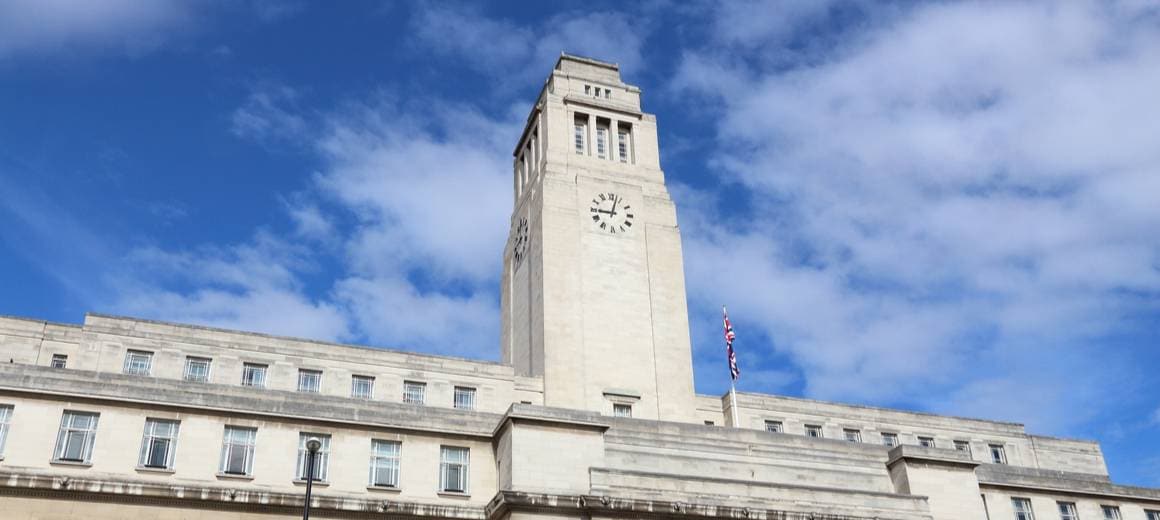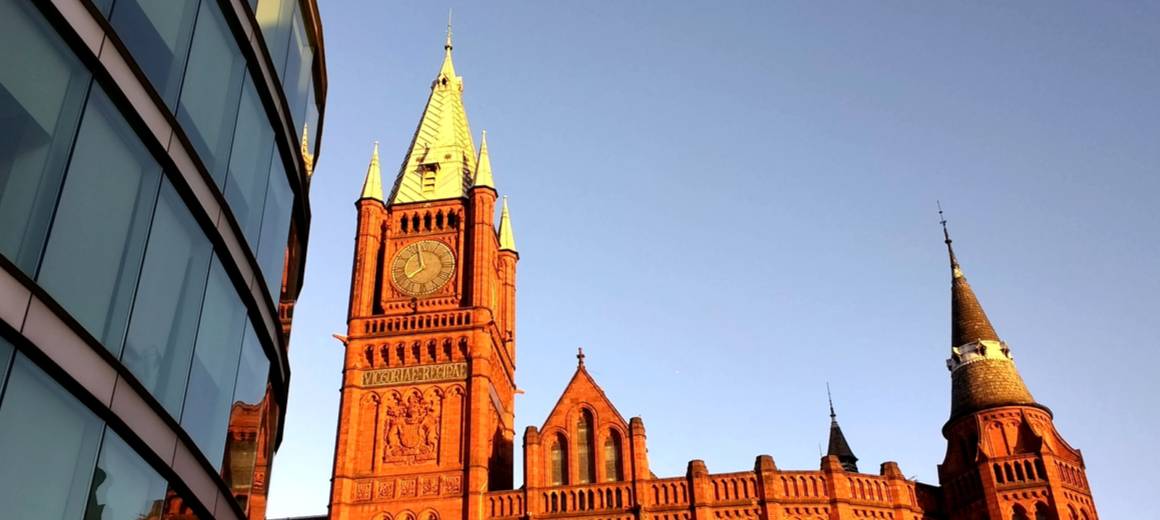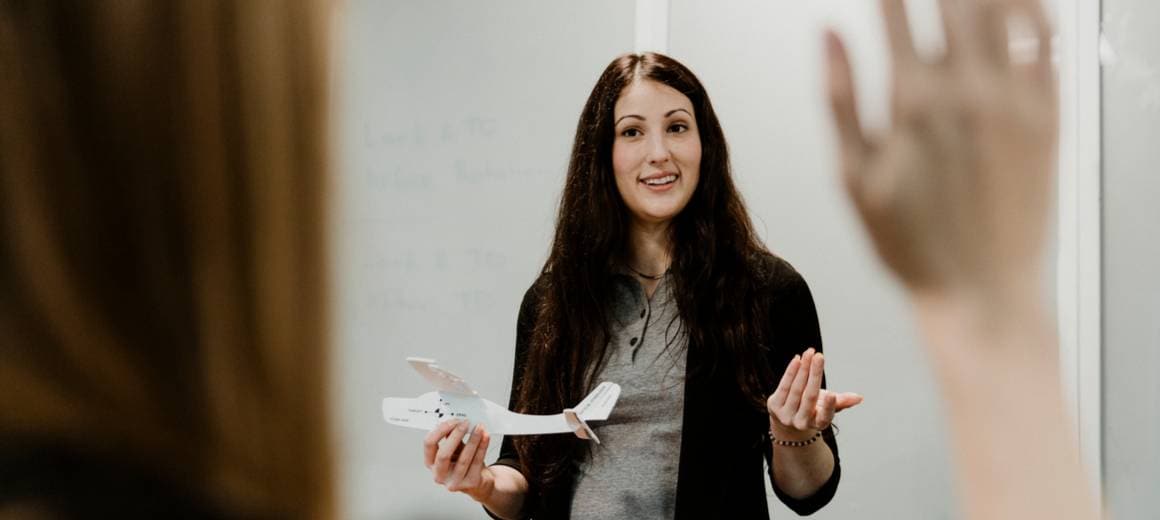Comparative analysis of the Top 10 UK aviation courses, with extensive information about universities and their aviation degrees
In this report, we take a detailed look at some of the top universities in the UK offering aviation and aeronautics courses, including a comparison of the cost, courses and facilities offered, course content, and the length of each course.
Summary of findings in a comparative table
History of aviation education and aviation universities in the U.K.
Aviation courses at top universities in the U.K.
Queen Mary University of London
Summary and thoughts about the future of aviation
Introduction
The aviation industry plays a fundamental role in the growth of any economy, as it supports a range of industries including tourism, transport and even the military. As such, it is a high priority for governments across the world to ensure aviation professionals receive excellent training and the best possible qualifications from reputable universities. Our team at Air Charter Service, the private jet charter company, has compiled this report, which compares the top 10 UK universities and their aviation programmes by providing key information and insights into the courses available to students.
COVID-19 has changed the world immeasurably, not least global air travel, at least for the moment. Nevertheless, the need for fresh talent entering the industry – whether in aeronautics, aviation, piloting, engineering or ground control – continues, and students can rest assured that before 2020 all the signs were that demand for air transport was rising.
The report is divided into four sections: a table illustrating a summary of the findings from different universities; a summary of the history of aviation education in the UK; detailed information about each university’s aviation courses; and some general perspectives on the future of aviation.
Summary of the top aviation courses in UK universities
Following the UK’s departure from the European Union on 31 December 2020, EU students may need to contact the institution they are interested in to confirm tuition costs, registration, scholarships, and other EU citizen-related information.
University: University of Manchester
THE World University Rankings 2020: 55
QS World University Rankings 2020: 27
ARWU Ranking 2020: 36
Aviation programmes offered: Aerospace Engineering BEng, Aerospace Engineering MEng, Aerospace Engineering with an Integrated Foundation Year, Aerospace Engineering with Industrial Experience, Aerospace Engineering with Management, MSc Aerospace Engineering
Pilot training programmes offered: –
Facilities: Engine research; space systems; student workshop; unmanned aerial systems; wind tunnels
Cost per year of studies: UK students: £13,000; International (including EU) students: £26,000
Estimated annual cost of accommodation: £5,395 to £7,465
Course length: 1 to 5 years
University: Queen Mary University of London
THE World University Rankings 2020: 110
QS World University Rankings 2020: 126
ARWU Ranking 2020: 201-300
Aviation programmes offered: Aerospace Engineering BEng (Hons), Aerospace Engineering MEng (Hons), Aerospace Engineering with Foundation BEng (Hons), Aerospace Engineering with Year Abroad BEng (Hons), Aerospace Engineering with Year Abroad MEng (Hons), Aerospace Engineering with Industrial Experience BEng (Hons), Aerospace Engineering with Industrial Experience MEng (Hons)
Pilot training programmes offered: –
Facilities: Computational modelling; flight simulator; mechanical testing; undergrad teaching labs; Whitehead Aeronautical Laboratory; wind tunnels – high-speed, low-speed, and acoustic research rig; workshops for engineering manufacture
Cost per year of studies: UK/EU students: starting at £9,250; International students: starting at £22,500
Estimated annual cost of accommodation: £5,080 to £8,125
Course length: 3 to 5 years
University: University of Southampton
THE World University Rankings 2020: 122
QS World University Rankings 2020: 97
ARWU Ranking 2020: 101-150
Aviation programmes offered: Aerodynamics and Computation MSc, Aeronautics and Astronautics BEng, Aeronautics and Astronautics MEng, Aeronautics and Astronautics/Aerodynamics MEng, Aeronautics and Astronautics/Airvehicle Systems Design MEng, Aeronautics and Astronautics/Computational Engineering and Design MEng, Aeronautics and Astronautics/Engineering Management MEng, Aeronautics and Astronautics/Materials and Structures MEng, Aeronautics and Astronautics/Semester Abroad MEng, Aeronautics and Astronautics/Spacecraft Engineering (MEng), Aerospace Electronic Engineering BEng, Aerospace Electronic Engineering MEng, Mechanical Engineering/Aerospace Engineering MEng
Pilot training programmes offered: –
Facilities: Dedicated student design studios and workshops; Boeing flight simulator; professional manufacturing centre; state-of-the-art jet engine and space propulsion facilities; the largest wind tunnel at any UK university
Cost per year of studies: UK students: starting at £9,250; EU and international students: starting at £22,760
Estimated annual cost of accommodation: £4,640 to £16,875
Course length: 1 to 4 years
University: University of Nottingham
THE World University Rankings 2020: 152
QS World University Rankings 2020: 96
ARWU Ranking 2020: 101-150
Aviation programmes offered: Aerospace Engineering BEng, Aerospace Engineering MEng
Pilot training programmes offered: –
Facilities: Aerospace Research Centre (ARC); Aerospace Technology Centre (ATC); Electrical Lab
Cost per year of studies: UK students: starting at £9,250; to be confirmed for EU and international students
Estimated annual cost of accommodation: £4,710 to £8,830
Course length: 3 to 4 years
University: University of Leeds
THE World University Ranks 2020: 155
QS World University Rankings 2020: 93
ARWU Ranking 2020: 101-150
Aviation programmes offered: Aviation Technology with Pilot Studies and Management BEng, Aeronautical and Aerospace Engineering BEng, Aeronautical and Aerospace Engineering MEng, Aerospace Engineering MSc
Pilot training programmes offered: Aviation Technology with Pilot Studies and Management BEng
Facilities: Solid mechanics; fluid mechanics; engine testing; thermofluids; control; dynamics; flight simulators (Airbus A320 airliner flight deck simulator, Piper Seneca complex twin-engine Flight and Navigation Procedure Training flight simulator); wind tunnels; CAD cluster; workshop
Cost per year of studies: UK and EU students: starting at £9,250 for 2020; EU students (2021/22) and international students: £24,500
Estimated annual cost of accommodation: £3,820 to £8,020
Course length: 1 to 4 years
University: University of Liverpool
THE World University Rankings 2020: 165
QS World University Rankings 2020: 181
ARWU Ranking 2020: 101-150
Aviation programmes offered: Aerospace Engineering BEng (Hons), Aerospace Engineering MEng (Hons)
Pilot training programmes offered: Aerospace Engineering with Pilot Studies BEng (Hons), Aerospace Engineering with Pilot Studies MEng (Hons), Aerospace Engineering with Pilot Studies with a Year in Industry BEng (Hons)
Facilities: Award-winning Active Learning Laboratory; two research-standard full-motion flight simulators (one of which is unique in the academic space); manufacturing robotics; wind tunnels; water flume
Cost per year of studies: UK students: starting at £9,250; EU and international students: £21,300
Estimated annual cost of accommodation: £5,240 to £11,170
Course length: 3 to 4 years
University: University of Sheffield
THE World University Rankings 2020: Unranked
QS World University Rankings 2020: 78
ARWU Ranking 2020: 101-150
Aviation programmes offered: Aerospace Engineering BEng, Aerospace Engineering MEng, Aerospace Engineering with a Foundation Year MEng or BEng, Aerospace Engineering with a Year in Industry BEng, Aerospace Engineering with a Year in Industry MEng, Aerospace Engineering with a Year in North America MEng
Pilot training programmes offered: Aerospace Engineering (Private Pilot Instruction) BEng, Aerospace Engineering (Private Pilot Instruction) MEng
Facilities: The Diamond building, which includes lecture theatres; IT equipment; project spaces and state-of-the-art laboratories; the iForge, which includes 3D printers, woodworking tools and an electronics station; five Merlin static flight simulators for aircraft design; 10 X-Plane flight simulators for flight control and navigation; 20 Wren jet engines to take apart and analyse; GUNT ET 796 jet engine test bench; Price Induction jet engine simulator bench; Rolls-Royce Gnome heritage jet engine/General Electric T58; four Armfield C15 bench-top, subsonic wind tunnels
Cost per year of studies: UK students: starting at £9,250; EU and international students: £23,750
Estimated annual cost of accommodation: £4,290 to £5,825
Course length: 3 to 4 years
University: University of Surrey
THE World University Rankings 2020: 251-300
QS World University Rankings 2020: 274
ARWU Ranking 2020: 301-400
Aviation programmes offered: Aerospace Engineering BEng (Hons), Aerospace Engineering BEng (Hons) with professional training, Aerospace Engineering BEng (Hons) with foundation year, Aerospace Engineering BEng (Hons) with foundation year and professional training, Aerospace Engineering MEng, Aerospace Engineering MEng with professional training
Pilot training programmes offered: –
Facilities: Design Centre with the latest design software and computer-numerical-control (CNC) machine-tooling equipment; EnFlo Labs with state-of-the-art wind-tunnel research facilities
Cost per year of studies: UK students: starting at £9,250; EU and international students: £22,400
Estimated annual cost of accommodation: £2,880 to £9,240
Course length: 3 to 5 years
University: Brunel University London
THE World University Rankings 2020: 201-250
QS World University Rankings 2020: 146
ARWU Ranking 2020: 201-300
Aviation programmes offered: Aerospace Engineering BEng, Aerospace Engineering MEng, Aerospace Engineering MSc
Pilot training programmes offered: –
Facilities: Computer labs with AA, AutoCAD, Catia, Creo (CAD – computer-aided design) and Matlab, Ansys (analysis); supersonic and subsonic wind tunnels; Merlin MP521 flight simulator; anechoic chamber
Cost per year of studies: UK and EU students: starting at £9,250; International students: £19,280
Estimated annual cost of accommodation: £4,350 to £9,700
Course length: 1 to 5 years
University: City, University of London
THE World University Rankings 2020: 401-500
QS World University Rankings 2020: 349
ARWU Ranking 2020: 701-800
Aviation programmes offered: Air Safety Management, Air Transport Management, Aircraft Maintenance Management, Airport Management, Aeronautical Engineering BEng (Hons), Aeronautical Engineering MEng (Hons)
Pilot training programmes offered: –
Facilities: Latest teaching environments and IT labs; Moodle platform for dynamic virtual learning; flight deck; motion simulators; wind tunnels; optical IC engines; optical compressors; optical fuel-injection systems; flywheel; Formula car simulator; micro turbine; high-performance computing; flight test course
Cost per year of studies: UK and EU students: starting at £7,000; International students £7,000
Estimated annual cost of accommodation: £6,400 to £12,400
Course length: 3 to 5 years
The above table reveals several important findings that are useful to students applying for aviation courses at top UK universities:
-
The University of Manchester is the only university on this list that is in the top 60 universities of the Times Higher Education (THE) World University Rankings, QS World University Rankings, and Academic Ranking of World Universities (ARWU) Ranking for 2020.
-
The top six universities all feature in the top 200 of the World University Rankings, QS World University Rankings, and ARWU Ranking for 2020.
-
Many aviation schools offer both three-year and sandwich/industrial placement options to suit students’ needs. Universities use their links with industry partners to facilitate sandwich/industrial-year student placements.
History of aviation education and aviation universities in the UK
-
Soon after the Wright brothers’ first successful flight, universities around the world started offering aviation education programmes, led by France and Germany.
-
The military’s adoption of aeroplanes significantly facilitated the development of aviation education in the UK, beginning with the launch of the Royal Aeronautical Society in London in 1866. At the time, the Wright brothers were manually instructing army officials on flying the Signal Corps Airplane No.1 without further formal training, but as the army continued using the aircraft, the Air Education and Training Command was formed to facilitate the activities.
-
Imperial College London claimed to be the first institution to teach a course in aeronautics in 1909. However, most of the formal training on aeronautics was observed in America, where universities such as Michigan began offering courses as early as 1914.
-
The University of Cranfield was originally formed as the UK’s College of Aeronautics in 1946.
Aviation courses at top universities in the UK
University of Manchester
History of the university
The university first began as Owens College, which was founded in 1851. Just over two decades later, the Royal School of Medicine and Surgery combined with Owens College to form the foundation for Victoria University of Manchester, the first civic university, in 1880.
Information about the programmes and university
The University of Manchester has two undergraduate degrees in Aerospace Engineering with different specialisations. Students can choose to pursue a standard bachelor’s or a bachelor’s with an integrated foundation year. The first undergraduate degree takes three years to complete, while the second takes four.
A Master’s degree is also on offer for Aerospace Engineering, including options for an integrated foundation year, industrial experience, and management specialisation. The management specialisation takes four years, while the other two specialisations take five years to complete.
There are a number of scholarship programmes available for students who are looking for additional funding for their studies in the Department of Mechanical, Aerospace and Civil Engineering. A few of these scholarships include:
-
BP scholarships – Students who qualify for this scholarship can receive a maximum of £9,000, or £3,000 per year from their second year of study.
-
Entry scholarships – Students who gain A*AA grades at A-level can receive a scholarship of £1,000 for their first undergraduate year of study, if they are from the UK/EU.
-
Whitworth Scholarship – Excellent aspiring or current students in the engineering field can apply for a Whitworth Scholarship Award, which offers £5,450 per annum for full-time study.
The department ensures that students benefit from a number of important strategic partnerships, including with leading global engineering companies such as BAE Systems, EDF, National Instruments and Rolls-Royce.
Facilities available
Students interested in Aerospace Engineering will likely want to take advantage of the university’s engine research facilities. These labs can be found in the mechanical engineering labs, and are fully serviced, acoustically isolated rooms where they can perform behaviour and performance tests for internal combustion and jet engines. Students will also have access to the instrumentation and skills necessary to conduct the necessary tests in the wind tunnels, space-system facilities, the workshop, and on unmanned aerial systems.
The university also has facilities for dynamics and vibration testing of heavy structures, hydraulics (including thermal), impact and explosions, materials and more.
Noteworthy accomplishments of staff and alumni
The university has a long history of excellence, with current and former staff and students being recognised across the world for their accomplishments. For example, Ernest Rutherford’s work in 1908, for which he received a Nobel Prize in Chemistry, was critical in the research that led to the splitting of the atom. More recently, Konstantin Novoselov shared a Nobel Prize in Physics in 2010 for his work on graphene.
Before you apply
If you are interested in applying to the University of Manchester, the university will require your prior and predicted grades, a personal statement declaring your commitment and knowledge, as well as references from teachers. Depending on the programme, additional criteria may need to be met in order to qualify. Undergraduates can find more information here, while postgraduates can find more information here.
ACS is here to help
Are you one of the aviation greats of tomorrow? Speak to us about applying for a course at one of the above universities, and we’ll do our best to provide some helpful advice. ACS also provides aviation and flying scholarships for many of the best aviation universities in the UK and all around the world. Find out more on our Aviation Scholarships and Student Grants page.
Queen Mary University of London
History of the university
Beginning in 1785, four institutions came together to form the core for the Queen Mary University of London. These were St Bartholomew’s Hospital Medical College, London Hospital Medical College, Westfield College and Queen Mary College. All of these institutions were focused on improving the quality of life for the disadvantaged.
As time passed, more institutions merged with these four founders, until 2000, when the university – known at the time as Queen Mary and Westfield College – became the Queen Mary University of London.
Information about the programmes and university
Queen Mary University of London offers seven Aerospace Engineering degrees, depending on the student’s choice of specialist subject. These include four Bachelor qualifications: a standard Aerospace Engineering honours degree; an honours degree with an additional foundation year; a degree with industrial experience; or one with a year abroad. The university also caters for those who are interested in Master’s programmes with a standard Master’s, as well as one with industrial experience, or a year abroad.
When you study these programmes, you’ll begin with developing solid engineering fundamentals, including developing a foundation in materials, mechanics, and design. Over the course of the degree, you’ll learn many specialised aerodynamics subjects including aircraft design, aircraft propulsion, and aerospace structures.
The university offers a number of scholarships to international as well as local students. If you are interested in studying Aerospace Engineering at Queen Mary University of London, you could qualify for a number of scholarships including:
-
Aldgate and Allhallows Foundation Scholarship – Students who qualify and receive this scholarship will receive £1,250 per year for three years.
-
Queen Mary Global Excellence Scholarships – Non-EU undergraduates in the Faculty of Science who enter with A*AA or the international equivalent will receive £2,000 towards their degree.
-
Sheikh Family Scholars’ Fund – Muslim students who are struggling financially can apply for this scholarship. If successful, they will receive £500 to £2,000.
The academic staff at this university also have extensive contacts with individuals in the industry.
Facilities available
If you study Aerospace Engineering here, you will have access to a state-of-the-art flight simulator, mechanical testing facilities, teaching laboratories, and a purpose-built, fully equipped teaching workshop.
Students will also be able to perform tests at the Whitehead Aeronautical Laboratory, which contains low- and high-speed wind tunnels, an acoustics research rig, pressure probes, and other advanced tools.
Noteworthy accomplishments of staff and alumni
The university has produced a number of success stories, not least nine Nobel Laureates. Three of these alumni are Sir Charles Kao, an electrical engineer who worked on the transmission of light in fibres in optical communication, Professor Joseph Rotblat, who connected cancer to the fallout from hydrogen bombs, and Sir John Vane, who shared the Nobel Prize in 1982 for his work on prostaglandins – lipid compounds that act like hormones in the humans and other animals.
Before you apply
Queen Mary University of London has different requirements for UK and international students, as well as non-country specific qualifications. Review them here to find out whether you qualify.
ACS is here to help
Are you one of the aviation greats of tomorrow? Speak to us about applying for a course at one of the above universities, and we’ll do our best to provide some helpful advice. ACS also provides aviation and flying scholarships for many of the best aviation universities in the UK and all around the world. Find out more on our Aviation Scholarships and Student Grants page.
University of Southampton
History of the university
The University of Southampton has its roots in the Hartley Institution, a place of learning which was funded by eccentric wine merchant Henry Robinson Hartley, who left his estate to the Corporation of Southampton after he died. By the early 20th century, the institution became a recognised University College, with expansion taking place in the 1950s to handle the demands from students.
The university has always embraced cutting-edge ideas, being one of the first to found a department of electronics, and make use of digital resources to create online courses. It’s this approach to education that has seen the university grow its intake to more than 20,000 students.
Information about the programmes and university
When applying for an Aeronautics and Astronautics degree at Southampton, there are two primary paths. The first is a three-year BEng Aeronautics and Astronautics, as well as a four-year integrated MEng Aeronautics and Astronautics programme. Both of these programmes offer you the chance to develop your skills so you will be able to design aircraft, race cars, rockets, and spacecraft.
If you choose the Master’s programme, you can specialise in aerodynamics, air vehicle systems design, computational engineering and design, engineering management, materials and structures, a semester abroad, or spacecraft engineering. You can find out more about these specialist options here.
Facilities available
The University of Southampton offers its engineering students a number of excellent facilities. Aerospace Engineering students will most likely be interested in the National Infrastructure Laboratory, the Engineering and Design Manufacturing Centre, the wind tunnel complex, and the Boeing flight simulator.
Noteworthy accomplishments of staff and alumni
The staff and students at the university have contributed greatly towards research, including key antibiotic studies, rail-network improvement solutions, the invention of erbium-doped fibre amplifiers for faster internet and much more. Professor Wendy Hall was also recognised for her achievements after becoming the first female Senior Vice President of the Royal Academy of Engineering, and was named an ‘inspiring woman of 2005’ by the Fawcett Society.
Before you apply
The application process will differ slightly depending on how far you are in your academic career. Undergrads are recommended to review course details and contact the faculty for assistance with their applications. Postgrads will need to also review the course requirements, and will be asked to demonstrate their interest in their desired postgraduate path.
ACS is here to help
Are you one of the aviation greats of tomorrow? Speak to us about applying for a course at one of the above universities, and we’ll do our best to provide some helpful advice. ACS also provides aviation and flying scholarships for many of the best aviation universities in the UK and all around the world. Find out more on our Aviation Scholarships and Student Grants page.
University of Nottingham
History of the university
The University of Nottingham began as a civic college back in 1881, after an anonymous benefactor helped provide the funding to get the institution up and running. The university was awarded its charter in 1948 and has continued to grow, expanding to include a medical school, and several additional campuses, including ones in Malaysia and China.
Information about the programmes and university
The University of Nottingham’s Aerospace Engineering degree, available as either an undergraduate or postgraduate course, educates students on a range of subjects including propulsion and aerodynamics. The undergraduate and postgraduate courses each take three years to complete on a full-time basis.
The university offers bursaries and scholarships to talented prospective students, first-year students and continuing students based on set eligibility criteria. A few of these scholarships include the Stoneygate Award (worth £9,000), the Hillsborough Memorial Trust Bursary, and the James Key Scholarship.
Students will also have access to highly sophisticated teaching facilities, and will benefit from the university’s links with industry giants such as Boeing and Airbus, as well as overseas learning opportunities at the university’s campuses in Malaysia and China.
Facilities available
Students are prepared for a career in aerospace engineering through access to hi-tech equipment in the Aerospace Research Centre (ARC), Aerospace Technology Centre (ATC), and the Electrical Lab.
Noteworthy accomplishments of staff and alumni
Graduates and staff have won an array of accolades and awards, including the Nobel Prize. Two Nobel Prize winners include Sir Peter Mansfield, which he shared for his work on magnetic resonance imaging, and the late Professor Clive Granger, who received the award for economic science.
Before you apply
Students wanting to apply to the University of Nottingham’s Aerospace Engineering programme should thoroughly review the entry requirements and funding details, along with their eligibility for a bursary.
ACS is here to help
Are you one of the aviation greats of tomorrow? Speak to us about applying for a course at one of the above universities, and we’ll do our best to provide some helpful advice. ACS also provides aviation and flying scholarships for many of the best aviation universities in the UK and all around the world. Find out more on our Aviation Scholarships and Student Grants page.
University of Leeds
History of the university
The University of Leeds has its roots in two separate colleges: the Leeds School of Medicine, which was founded in 1831, and the Yorkshire College of Science, founded in 1874. Both of these institutions served vital roles in their communities and would continue to evolve as necessary to meet the needs of students. They eventually came together as a single institution in 1884. It was this foundation that allowed the University of Leeds to come to life in 1904, when the university received a charter from King Edward VII.
Information about the programmes and university
The University of Leeds offers two paths: the more traditional Aeronautical and Aerospace Engineering studies, as well as a pilot training programme for those who are interested in aviation courses. The former is designed to impart skills in managing aviation operations such as finance, engineering materials and aircraft safety; while the latter provides the foundational concepts and aviation knowledge required to fly professionally.
The Aeronautical and Aerospace Engineering programme will teach you subjects including mathematics, and physical, materials, and computer sciences, built upon a strong foundation in design philosophy. These programmes can take anywhere between three and four years to complete, depending on whether students choose a Bachelor’s or a Master’s path.
The aviation course – Aviation Technology with Pilot Studies and Management BEng – takes three years to complete on a full-time basis. To prepare aviation graduates for the future, students are required to first cover theoretical concepts to deepen their understanding of core aspects.
They must also complete a project each year, before undertaking hands-on coursework using state-of-the-art equipment such as an Airbus A320 airliner cockpit simulator and a twin-engine FNPT II aircraft simulator. Placements are also provided with leading airlines to further develop their skills.
Regardless of whether you’re interested in engineering or pilot scholarships, the University of Leeds offers scholarships for undergraduate students with annual household incomes of less than £42,875. Students’ eligibility is determined by the university, with successful applicants awarded £3,000 per year for three years. Various organisations also partner with the university on knowledge-transfer partnerships, whereby the school undertakes projects for firms in the UK and around the globe such as Lockheed Martin, Boeing and the US Air Force. The partners fund the projects, while the university provides key insight for strategic management.
The university is ranked among the top 100 institutions worldwide, and was awarded the Gold Teaching Excellence Framework (TEF). Its general engineering research facilities have been rated ‘internationally excellent’, and students get the chance to interact with academics who are leaders in their fields.
Most graduates enjoy careers at commercial airlines and other aviation companies, with examples including a pilot at Qatar Airways, an air-traffic controller for the RAF and a network executive at British Airways.
Facilities available
Aeronautical and Aerospace Engineering students will have access to labs that include equipment for solid mechanics, fluid mechanics, engine, thermofluids, and control and dynamics testing. A hi-spec CAD cluster and workshop is available for the development of prototypes. Students will also be able to use wind tunnels and a flight simulator for testing.
Noteworthy accomplishments of staff and alumni
Graduates from University of Leeds’ Aviation and Aerodynamics Engineering school include Flybe cadet Justin Ramchurn, British Airways technical engineer Scott Falkiner, and Airbus employee Esme Loweth. Head of Aviation Jill Tushingham has immense experience in the aviation industry, both as an instructor and a pilot.
Before you apply
It is recommended that applicants review the entry requirements for A-Levels and GCSEs before applying, but students will need to review the criteria depending on if they are applying for an undergraduate, master’s, or research degree, or if they are an international student. The university provides international students with a pre-sessional English course to help improve their English language, with an overall IELTS score of 6.0 required.
ACS is here to help
Are you one of the aviation greats of tomorrow? Speak to us about applying for a course at one of the above universities, and we’ll do our best to provide some helpful advice. ACS also provides aviation and flying scholarships for many of the best aviation universities in the UK and all around the world. Find out more on our Aviation Scholarships and Student Grants page.
University of Liverpool
History of the university
The university was founded in 1881 as the University College Liverpool. It opened its doors to students in 1882 and was able to build a strong reputation for itself, thanks to generous funding from the residents of Liverpool. Two years later, it joined the federal Victoria University, and was awarded its charter in 1903, after which it was known as the University of Liverpool.
Today the university operates three faculties: Science and Engineering, Health and Life Sciences, and Humanities and Social Sciences. What’s more, Liverpool has a flying school.
Information about the programmes and university
Students can choose from two aviation and aeronautical courses at the University of Liverpool: Aerospace Engineering, and Aerospace Engineering with Pilot Studies, both available to study at either undergraduate (BEng) or postgraduate (MEng) level. While both courses equip students with fundamental engineering concepts such as propulsion systems, flight dynamics and aerodynamics, the latter programme at this aviation school introduces aspects of pilot studies, with the first year based on the Private Pilots Licence (PPL) and the second on the Airline Transport Pilot Licence (ATPL). If you are interested in developing your skills through a pilot school, this is a great place to start. Both courses take three years to complete at undergraduate level and four years at postgraduate level.
The University of Liverpool seeks to empower its students to attain the latest practical and hands-on, industry-standard skills by facilitating placements at blue-chip companies such as BAE Systems, ABB, and the British Army.
It offers a wide range of bursaries and scholarships for talented students, including the Liverpool Bursary, Care Leavers’ Opportunity Bursary, Hillsborough Trust Fund and Asylum Seekers Bursary. Regulations ensure that only eligible students receive financial assistance.
The university partners with diverse players in the industry including Jaguar Land Rover, Toyota, Network Rail, and BAE Systems as it seeks to maximise graduate opportunities, career prospects and graduate placements. These partnerships help to further enhance knowledge transfer and collaboration between the university and the aviation industry. Most graduates secure employment at commercial institutions such as British Airways, Airbus, the Royal Navy and various government organisations.
Facilities available
Students have access to highly sophisticated equipment in the award-winning Active Learning Laboratory, as well as two research-standard flight simulators, robotics for manufacturing, a water flume and wind tunnels.
Noteworthy accomplishments of staff and alumni
The university was home to nine Nobel Prize winners including: Professor Sir James Chadwick, who discovered the neutron; Professor Har Gobind Khorana, who shares a Nobel Prize with Professor Sir Robert Robinson for their work into alkaloids and other plant products; and Professor Rodney Robert Porter, who was recognised for his work on the structure of antibodies.
Dr Matt Taylor, who served as a project scientist for the European Space Agency’s Rosetta mission, was also an alumnus of the university.
Notable faculty members include: Ken Badcock, a Professor of Computational Aerodynamics and the Pro Vice Chancellor of the School of Engineering; and programme director Dr Sebastian Timme, a Senior Lecturer in Mechanical Materials and Aerospace Engineering. Both have published numerous papers in international journals and undertaken diverse research projects.
Before you apply
To successfully apply to the University of Liverpool’s aviation school, it is important that applicants review the entry requirements, and financial procedures and fees. Applications are made online via UCAS. Applications vary depending on whether you’re an undergraduate, postgraduate, interested in research, online study, or an international student.
ACS is here to help
Are you one of the aviation greats of tomorrow? Speak to us about applying for a course at one of the above universities, and we’ll do our best to provide some helpful advice. ACS also provides aviation and flying scholarships for many of the best aviation universities in the UK and all around the world. Find out more on ACS’ Aviation Scholarships and Student Grants page.
University of Sheffield
History of the university
The origin of the University of Sheffield lies with three institutions: Sheffield Medical School, Firth College, and Sheffield Technical School. These three places of learning came together in 1897 and received their charter to operate as the University of Sheffield in 1905. The University of Sheffield has three engineering departments, which were all established in 1917.
Information about the programmes and university
The University of Sheffield offers an Aerospace Engineering course at both undergraduate and postgraduate levels. The former is suited to those seeking a broad scope of transferable skills that are attractive to diverse employers, while the latter is aimed at individuals seeking a career as a professional engineer. The course takes three years to complete at undergraduate level and four years at postgraduate level.
The university’s close industry links enable students to gain work experience before graduating; it has partnered with some of the world’s leading engineering firms including Jaguar Land Rover and Rolls-Royce.
Students who are interested in pilot training programmes can also study a Bachelor’s or Master’s in Aerospace Engineering (Private Pilot Instruction). Aspiring pilots will cover the theory of aero propulsion, aircraft dynamics and control, and more, but will also undergo initial flight training. This is in the form of ground and flight instrument training, as well as five hours of flight training. If you are interested in attending a pilot school in the UK, be sure to check out this programme.
The University of Sheffield offers bursaries and scholarships to students, who can choose between fee waivers and direct payments. Students must receive approval from the Student Finance department to be eligible for a bursary. These bursaries are made available under a number of circumstances, for example, cover for students with exceptional home circumstances, bursaries based on annual household income, or ones based on your grades.
Scholarships are available under a number of programmes, including the Experience Sheffield Scholarships, and the Global Summer Experience Scholarship. The university also partners with leading engineering firms including Airbus, Rolls-Royce, Boeing and Jaguar Land Rover to provide graduate placements and site visits, with Boeing also offering £3,000 scholarships for outstanding students.
A review of the university’s alumni profiles shows that most graduates go on to work in the commercial flight industry, with examples including an applications engineer at Caterpillar and a graduate engineer at Nissan. Students also secure jobs in aerospace design, aviation, transport manufacturing and the Armed Forces in organisations such as British Airways, Boeing, Airbus and the Royal Navy.
Facilities available
The Diamond is the main building, where students will have access to the latest lecture rooms, a variety of study spaces, IT equipment and computer rooms, as well as other workspaces. The iForge, a student-managed makerspace, is part of the Diamond.
In the Aerospace Engineering labs, the students will have access to various cutting-edge tools for aerospace learning and development. These include 15 flight simulators for aircraft design, flight control, and navigation. Students will also be able to study one of 20 Wren jet engines and have the opportunity to perform tests on a GUNT ET 796 jet engine test bench.
Noteworthy accomplishments of staff and alumni
Various noteworthy professionals have studied at the university, most famously Amy Johnson, the first woman to fly solo from Britain to Australia, whose achievements resulted in the university offering scholarships to aspiring female engineering students. Additionally, Sir Donald Bailey Coleman, the developer of the Bailey bridge, a type of prefabricated truss that proved vital for helping the Allies win the Second World War.
Aerospace Engineering 2017 graduate Salma Dwikartika now works as a mechanical engineer at Safran Landing Systems and credits the Industrial Training Programme for helping her prepare for the role.
The University of Sheffield’s faculty staff includes school director Dr Martin Jackson, who has published numerous papers in international journals and book chapters. He graduated with an MEng and worked in aerospace materials at Rolls-Royce, before completing a PhD at Imperial College London. Dr Jackson has expertise in solid-state processes, particularly when working with titanium-based alloys.
Before you apply
Before applying to study at Sheffield’s aviation school, students are advised to thoroughly review the different courses and entry requirements. The university accepts students with a wide range of backgrounds and credentials, ranging from A-Levels and Cambridge Pre-U to international baccalaureate and BTEC qualifications. Students should also review the financial implications to decide whether they need financial assistance.
ACS is here to help
Are you one of the aviation greats of tomorrow? Speak to us about applying for a course at one of the above universities, and we’ll do our best to provide some helpful advice. ACS also provides aviation and flying scholarships for many of the best aviation universities in the UK and all around the world. Find out more on our Aviation Scholarships and Student Grants page.
University of Surrey
History of the university
This institution began life as the Battersea Polytechnic Institute in 1891. It was later renamed the Battersea College of Technology in 1957, after it was designated as a ‘college of advanced technology’. In 1963 it was proposed that the college should move towards full-fledged university status, and in 1966 the University of Surrey was established. The university went from strength to strength, opening the Surrey Research Park and Manor Park campus over the following decades.
Information about the programmes and university
The University of Surrey’s Aerospace Engineering path has six routes. Students can pursue one of four Bachelor programmes: a standard three-year BEng (Hons), a four-year BEng (Hons) with professional training, a four-year BEng (Hons) with a foundation year, or a five-year BEng (Hons) with both a foundation year and professional training. Students interested in Master’s programmes can choose a standard MEng degree, which takes four years to complete, or a five-year degree with professional training.
As a student of either of these programmes, you’ll study many subjects, including advanced materials, design, space systems, and propulsion. This theory will be put into practice using the university’s facilities, including the jet engine and flight simulator.
Students who need financial assistance can apply for scholarships and bursaries. Two of these include the Newtons’ Scholarship, which provides the student with £3,000 a year for up to three years, and the Surrey International Masters Scholarship, which awards students with a £2,500 discount on the first year of fees.
As a graduate of these degrees, you can pursue a career in a number of fields. The university reports that some of its recent graduates have gone on to work variously as: a GE90 Strategic Propulsion Engineer at GE Aviation; a Flight Physics Engineer at QinetiQ; and a Telecoms Satellite Designer at Airbus.
Facilities available
All Aerospace Engineering students will have access to the Design Centre. Here, students will be able to take advantage of the latest design software and machine-tooling equipment. Students will also be able to use the facilities at the Environmental Flow Research Centre (EnFlo), the only laboratory in the UK with an environmental wind tunnel.
Noteworthy accomplishments of staff and alumni
The University of Surrey has won a total of four Queen's Anniversary Prizes, one of which was for Engineering for the space industry (1996), and the university is home to a number of outstanding academics, both from the student and staff bodies. One of its most notable academics is the multi-award-winning Professor Ravi Silver, whose accomplishments include being awarded the Institute of Materials, Minerals and Mining (IOM3) Platinum Medal in 2015, and the Institute of Engineering and Technology (IET) JJ Thomson Medal in 2013.
Before you apply
Undergraduates, postgraduates, postgraduate researchers, and international students will need to review the applicable application criteria to ensure they qualify.
ACS is here to help
Are you one of the aviation greats of tomorrow? Speak to us about applying for a course at one of the above universities, and we’ll do our best to provide some helpful advice. ACS also provides aviation and flying scholarships for many of the best aviation universities in the UK and all around the world. Find out more on our Aviation Scholarships and Student Grants page.
Brunel University London
History of the university
Brunel’s predecessors – which built the foundation upon which Brunel University London exists – include Borough Road College, Shoreditch College, the West London Institute of Higher Education and more, with the first institute founded in 1798. The university received its charter in 1966.
Information and facts about the programmes
Brunel University London offers students three Aerospace Engineering paths: Aerospace Engineering BEng, Aerospace Engineering MEng, and Aerospace Engineering MSc.
The Bachelor’s can be completed in three years, or four if you decide to do a work placement. It will cover a variety of subjects including structures, materials, fluids, and maths. The standard Master’s degree is a four-year programme, which takes an extra year if you decide to also do a work placement.
If you don’t quite qualify, though, you can still consider the Engineering Foundation Year programme. This is a one-year programme that prepares you for studying Engineering at university level.
The Aerospace Engineering MSc programme is specifically for those who want a Master of Science degree. This particular degree takes you beyond the regular Master’s and provides you additionally with specific technical and management skills that will help you in the aerospace engineering industry.
Brunel University London offers bursaries and scholarships for undergraduate, postgraduate and international students. Undergraduates and postgraduates will automatically be awarded bursaries, depending on grades and other qualifying criteria. If students are interested, they can apply for a number of scholarships, such as the Brunel Family Discount, which offers a 10% reduction on fees, the Brunel Sanctuary Scholarship, which waives all fees, or the Postgraduate Academic Excellence Scholarship, which waives 15% of the student’s fees.
Completing these degrees might see you land positions at aerospace companies that include Rolls-Royce, Airbus, Lockheed Martin, or Thales.
Facilities available
As an Aerospace Engineering student at Brunel, you get access to the latest aerodynamic equipment and software. This includes both super- and subsonic wind tunnels, the Merlin MP521 flight simulator and anechoic chamber, and computer labs with software such as AutoCAD, Matlab, and Ansys.
Noteworthy accomplishments of staff and alumni
Brunel’s College of Engineering, Design and Physical Sciences is currently run by Acting Vice Provost and Dean of the College, Professor Hua Zhao – the two-time winner of the Herbert Akroyd Stuart Prize from the Institution of Mechanical Engineers for the best paper on IC engines. He received this award in 2015 and 2017. He has also received numerous other awards throughout his career, including the 2004 Professional Engineering Publishing Award for the best paper published in the International Journal of Engine Research, 2005, and was the 2009 winner of the LowCVP Technology Challenge for patented RegenEBD Technology.
One of the many notable alumni is Paul Kahn, who graduated with a Master’s in Engineering and Management Systems and went on to become a Fellow of the Royal Aeronautical Society, as well as Ambassador for Advanced Manufacturing and Aerospace. He has extensive international management experience in aerospace, defence and transportation, with roles in the industry that include President and CEO of the then Airbus Group UK.
Before you apply
Undergraduates and postgraduate Aerospace Engineering programmes each have their own requirements. Undergraduate applications must be made through UCAS, while postgraduate students can apply directly through the course they are interested in on the university site.
ACS is here to help
Are you one of the aviation greats of tomorrow? Speak to us about applying for a course at one of the above universities, and we’ll do our best to provide some helpful advice. ACS also provides aviation and flying scholarships for many of the best aviation universities in the UK and all around the world. Find out more on our Aviation Scholarships and Student Grants page.
City, University of London
History of the university
This university began as the Northampton Institute in 1894, remaining so until 1966, when it gained charter status, and its name was changed to the City University. The first major merger came decades later in 2001 after City merged with the Inns of Court School of Law. The university then joined the federal University of London 15 years later.
Information about the programmes and university
The two most easily recognisable programmes from City are the Aeronautical Engineering
BEng (Hons), and the Aeronautical Engineering MEng (Hons), which are designed for those looking to do a degree with a focus on engineering skills that will help students develop future aircraft.
If you have experience in the aviation industry, but want to change the direction of your career, you can sign up for one of these MSc programmes:
-
Air Safety Management – If you have two years of industry experience and are interested in improving safety in the industry, you can apply for this qualification. It will equip you with the latest knowledge to succeed in a leadership position that involves managing safety and risk in the aviation industry.
-
Air Transport Management – If you have two years’ industry experience and work as a pilot, air traffic controller, dispatcher, or many other roles, this course will help you improve your skills as an air transport manager, as well as give you an understanding on related subjects such as air transport economics, as well as airline business and business planning.
-
Aircraft Maintenance Management – If you have two years’ industry experience as an engineer or maintenance staff, this course will help you deepen your current understanding of aircraft maintenance, as well as expand your knowledge into other areas, including human resources and crisis management.
-
Airport Management – If you have two years’ industry experience and are looking to move into a management role at an airport or airline, this course can help set you on that path.
Depending on your year of study, City, University of London has a number of scholarships and bursaries available. Two of these include the City Cares Bursary, which awards you £3,500 per year for three years; and School of Mathematics, Computer Science and Engineering doctoral studentships, which are annual bursaries worth £16,000.
Facilities available
City, University of London offers a wider spread of aerospace industry fields than some of the other universities on this list, as its array of facilities on offer proves; these include the flight deck, motion simulators, microturbine, and much more.
Noteworthy accomplishments of staff and alumni
If you’re interested in studying at City, about 40% of academics at the institution are contributing high-level, internationally excellent, research. Students who complete their studies here also go on to earn good starting salaries, with City being ranked 11th nationally in 2019 in The Times and The Sunday Times Good University Guide 2019. Also, almost half its students choose to take part in postgraduate or research programmes.
In 2018, City graduate Jose Ignacio Valenzuela was one of three winners of the Study UK Alumni Awards from across the world.
Before you apply
All undergraduate and postgraduate students are required to review the necessary criteria before they apply to study at City, University of London. There are some requirements, such as a sufficient understanding of English, which students must be able to demonstrate before they qualify for any of the university’s courses.
ACS is here to help
Are you one of the aviation greats of tomorrow? Speak to us about applying for a course at one of the above universities, and we’ll do our best to provide some helpful advice. ACS also provides aviation and flying scholarships for many of the best aviation universities in the UK and all around the world. Find out more on our Aviation Scholarships and Student Grants page.
Summary and thoughts about the future of aviation and aviation studies
There will be inevitable knock-on effects of the coronavirus pandemic on both the aviation industry at large and on those who choose to begin or continue their careers in this field. Nevertheless, as the world continues on the road to recovery, so too will global aeronautics and aviation. Putting that aside, though, this review of the top 10 aviation programmes offered across UK universities highlights several important findings:
-
Institutions are recognising the importance of equipping students with industry-required skills through hands-on training in state-of-the-art facilities and modern engineering labs.
-
Universities are embracing the role of the industry in shaping aviation courses, and are inviting guest lecturers to impart their experience and mentor students.
-
Aviation degree graduates from the top 10 UK universities for their subject have a very high employability rate (all report upwards of 90%), reflecting the pressing need for well-trained aviation professionals in the industry.
A look at the wider aviation landscape reveals several key developments that are likely to impact the industry’s future:
-
There is a growing trend towards “green aviation”: the development of aircraft that don’t emit harmful carbon-based emissions.
-
Another key emerging trend is the development of city airbuses, or “flying taxis”, for transport in urban areas. These unmanned planes will be able to propel themselves from place to place without manual assistance. One key developer, electric aircraft designer and manufacturer Eviation, is working on pilotless commuter aircraft for travelling short distances.
-
NASA is pioneering research into significantly reducing flight times by designing X-planes that can travel at supersonic speeds without a sonic-boom effect.
-
Several parties are introducing futuristic aeroplane designs that differ from their current jumbo-jet counterparts in both the materials used and their overall shape.
The above developments will help to overcome various challenges faced by the aviation industry. For instance, pilotless planes will help to address the worldwide shortage of pilots, while electric planes can help to reduce harmful emissions.
Are you one of the aviation greats of tomorrow? Speak to us about applying for a course at one of the above universities, and we’ll do our best to provide some helpful advice. ACS also provides aviation and flying scholarships for many of the best aviation universities in the UK and all around the world. Find out more on our Aviation Scholarships and Student Grants page.
A quick word to the universities featured
Are you a representative of one of the universities featured above? If you’d like to provide us with up-to-date or additional information, feel free to get in touch via our contact page, or call us on +44 (0)20 8339 8588.

 In 2018, we took a look at some of the best aviation courses on offer from some of the best universities in the UK. In 2020, we decided to revisit what’s on offer to give you an update on the top 10 UK aviation courses that you can study.
In 2018, we took a look at some of the best aviation courses on offer from some of the best universities in the UK. In 2020, we decided to revisit what’s on offer to give you an update on the top 10 UK aviation courses that you can study.


